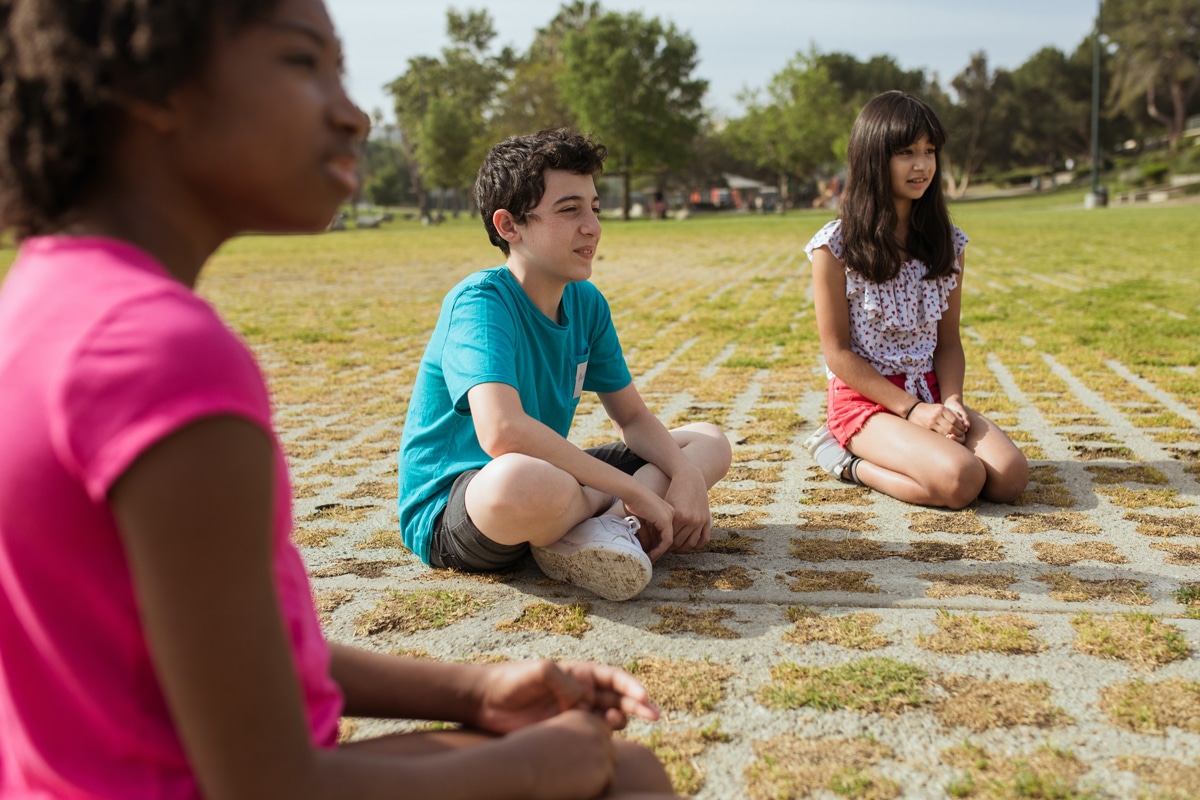6 minute read
Making friends can be difficult for some children, especially those with social anxiety or other challenges such as autism spectrum disorder. For these children, making and maintaining relationships can sometimes feel like a daunting task. It’s important to understand that having difficulty making friends is not the child’s fault—it’s often because of their unique set of circumstances.
Fortunately, there are many ways parents and caregivers can help a child make and maintain friendships. With patience, understanding, and guidance from adults, children who have difficulties making friends will find success in forming meaningful relationships with others.
This article will explore seven strategies parents and caregivers can use to help a child make and keep friends and by implementing these strategies into everyday life, you’ll be giving your child the tools they need to build strong friendships!
Understanding and supportive environment
Before anything else, it’s important to provide an understanding and supportive environment for your child. This means listening to their concerns, validating their feelings, and providing them with emotional support when needed. It also means helping them recognize that they can make friends, even if it might not feel like it.
Additionally, it’s important to model the behavior you want them to display with their peers. Showing compassion and understanding in interpersonal situations, as well as setting a good example of how to handle disagreements, will help your child learn how to appropriately interact with others.
Practice social skills
When it comes to helping children form friendships, practice is key. Providing opportunities for your child to practice social skills, such as making introductions and joining conversations, will help them become more confident in their ability to interact with others even if their social skills affected by autism might be limited. Experts recommend creating a social story or visual aid that outlines the steps they should take when introducing themselves to others, as well as role-playing different interactions.
Therefore, you can practice these skills in the comfort of your own home by role-playing with your child or having them engage in activities such as board games that involve taking turns and collaborating. You can also attend social events with your child, such as a birthday party or playdate, to help them gain experience being around others.
Encourage them to reach out
Often, children who have difficulty making friends don’t take the initiative to reach out. Encouraging your child to step outside of their comfort zone and introduce themselves to someone new can be a good way for them to start forming relationships.
Try setting up playdates or giving your child the opportunity to join a club or activity that interests them and would give them the chance to meet new people.
You can also try to introduce your child to other kids in the same age or grade range by inviting them over for dinner, attending a family-oriented event together, or having them join you at a park.
On the other hand, if your child is too shy to initiate conversations with new people on their own, you can help them out by introducing them and engaging in conversation first.
Help them with problem-solving
When it comes to solving conflicts or disagreements between peers, children need the support of their parents to learn how to effectively manage these situations. Teaching your child the importance of negotiation and compromise can help them work through difficulties and understand that there are always two sides to every story.
Moreover, it’s important to be patient and allow your child the opportunity to work out their problems on their own. If they feel overwhelmed or don’t know how to navigate this situation, guide them by asking open questions that will help them come up with solutions.
Strategies for responding to bullying
It’s important to be aware of the possibility your child might experience bullying, as children with social difficulties are more likely to be targeted. Having conversations about how to respond to bullying and providing your child with strategies for diffusing difficult situations can help them feel prepared if they ever find themselves in an uncomfortable situation.
For instance, you can teach them ways to calmly and assertively stand up for themselves, such as using “I” statements or walking away from the situation if it gets too overwhelming. You can also look into anti-bullying programs in your area and connect with social workers or counselors who can provide further support if needed.
Provide positive reinforcement
Positive reinforcement is a great way to encourage children who are having difficulty forming friendships. By giving praise for even small steps forward, you’ll be showing them that their efforts are valued and appreciated. This will not only help them to stay motivated and keep trying even in the face of adversity, but it will also help build their confidence and self-esteem.
On the other hand, it’s just as important to avoid shaming or punishing your child when they don’t make the progress you hoped. Instead, focus on their successes and offer a listening ear when things don’t go their way.
Professional help
Seeking help from a mental health professional such as an occupational therapist or psychologist can be beneficial for children struggling to make friends. A specialist will be able to assess your child’s individual needs and provide them with guidance tailored specifically to their situation, helping them develop social skills and form meaningful connections with others.
For instance, a therapist might recommend social skills groups, which involve your child joining other kids with similar challenges and working on their communication and interaction skills in a safe environment.
On the other hand, speech therapy might be beneficial for children whose language difficulties are a barrier to forming friendships. A specialist will be able to assess your child’s needs and provide personalized guidance and activities that target their specific goals.
While it can be difficult for children with social difficulties to make friends, it’s not impossible. With patience and effort from both you and your child, as well as guidance from professionals if needed, there are plenty of ways to help them develop the skills they need to form meaningful connections with others.
From providing positive reinforcement and helping them problem-solve conflicts between peers, to teaching strategies for responding to bullying and seeking professional help when necessary – all these measures will play an important role in supporting your child on their journey towards forming healthy friendships.






